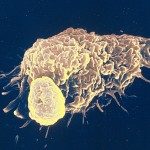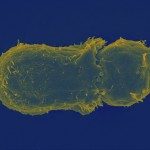Link to Pubmed [PMID] – 8574808
Q J Nucl Med 1995 Jun;39(2):134-9
Considerable, but as yet still controversial evidence indicates the presence, in mammalian tissues of endogenous digitalis-like factors (EDLFs) which inhibit cell membrane Na+, K(+)-adenosine triphosphatase (Na+, K(+)-ATPase) and which may cross-react with anti-digitalis antibodies. The aim of this study was to evaluate the effect of antibodies against cardiac glycosides on Na+, K(+)-ATPase in human erythrocytes. For this purpose, we measured the effect of antibodies against two different cardiac glycosides (anti-ouabain rabbit antiserum and anti-digoxin Fab fragments) on the activity of the Na+, K(+)-ATPase, as measured by erythrocyte rubidium-86 (86Rb) uptake, in subjects who had never come into contact with exogenous cardiac glycosides, and compared these results with the effect of two control rabbit sera: a normal serum and an antiserum to a non-related antigen. Anti-ouabain rabbit antiserum and anti-digoxin Fab fragments induced a significantly greater percentage change in 86Rb uptake in the erythrocytes than the two control sera (ANOVA followed by multiple comparison by the Games-Howell test). The average percentage change was +11.8 +/- 16.3% (n = 19) (mean +/- SD) for anti-ouabain antiserum +10.8 +/- 15.6% (n = 23) for anti-digoxin Fab fragments, -1.68 +/- 11.2% (n = 11) for anti-rhGM-CSF antiserum, and -5.8 +/- 11.7 (n = 10) for normal control serum. In a subgroup of ten subjects in whom the 3 antisera were tested simultaneously, the stimulation of erythrocyte 86Rb uptake induced by the two antidigitalis antibodies correlated significantly (r = 0.906, p = 0.001, n = 10).(ABSTRACT TRUNCATED AT 250 WORDS)


